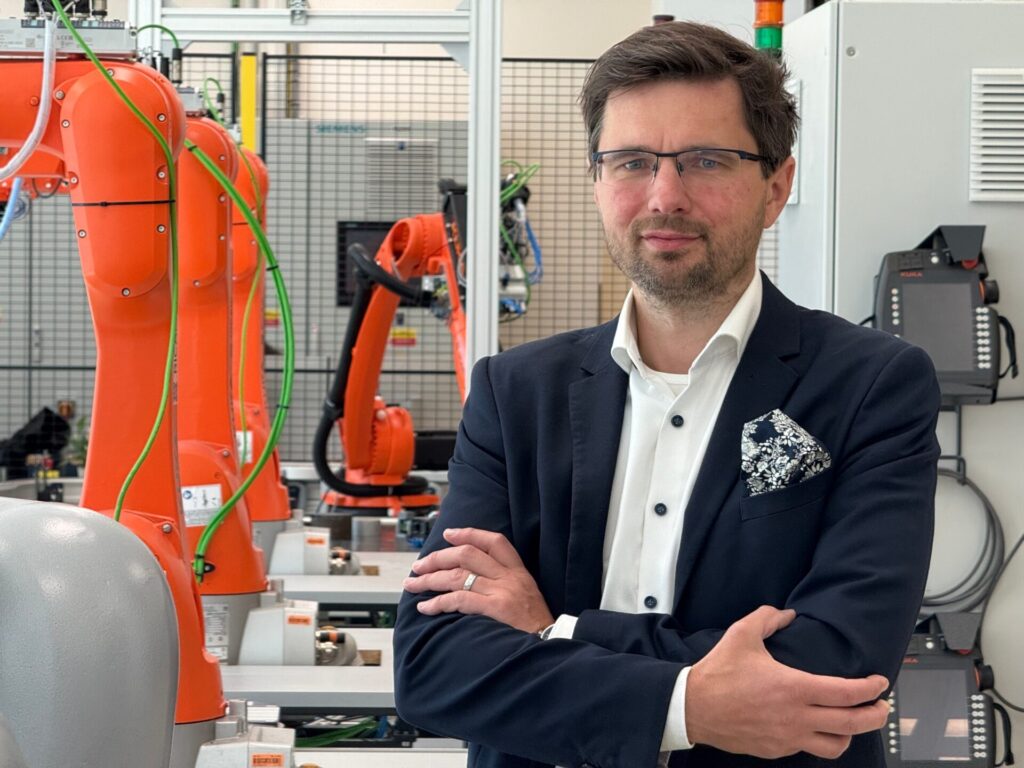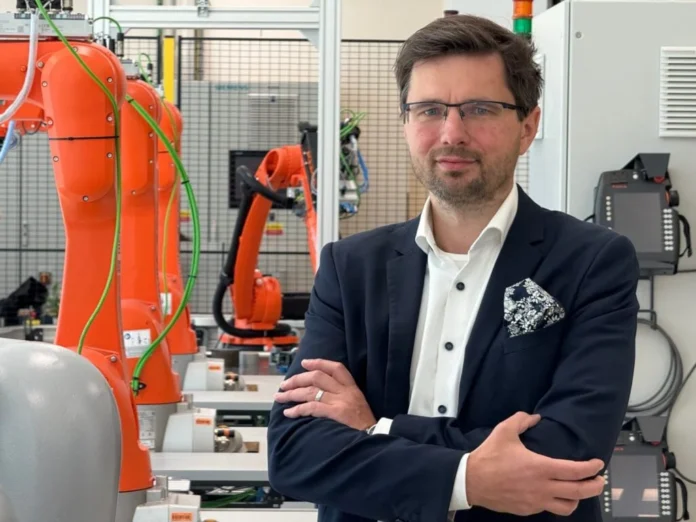“We want Czech industry to get the most out of top-tier European artificial intelligence. We have the means and the expertise to make that happen,” says Ondřej Beránek, Head of the Czech AI-MATTERS Office at CIIRC CTU. How is artificial intelligence making its way into Czech industrial practice? What exactly does the AI-MATTERS project offer, and why should companies take notice? The European Testing and Experimentation Facilities for Trustworthy AI (TEF) is not just another Brussels acronym. In reality, it represents tangible support for companies that want to test and implement AI technologies in their products, processes, or services.
Over the past several months, the Czech node of the TEF AI-MATTERS network, has become fully operational, offering access to expert know-how, infrastructure, and funding for both small and large enterprises across manufacturing supply chains.
What exactly lies behind this initiative and how can Czech companies benefit? We take a look back at the previous year of operations and offer a glimpse into what lies ahead in a conversation with Ondřej Beránek, who coordinates the Czech TEF AI-MATTERS node at CIIRC CTU in Prague.

In the Czech Republic, AI-MATTERS has a budget of up to CZK 200 million to support small and medium-sized enterprises in developing AI-based solutions. The project has been running since 2023 – what have been the main achievements recently?
We have integrated three Czech industrial testbeds at technical universities in Prague, Brno, and Ostrava into a unique European network of testing and experimentation facilities. Thanks to this, we can now offer our services internationally, and at the same time significantly reduce the costs of robotic workplace services at CIIRC CTU, CEITEC BUT, and VSB-TUO. We offer clients an excellent price-performance ratio, including access to high-end technology and experts. Setting this up wasn’t easy. Now, just at CIIRC CTU, we have six new commercial contracts through which we provide expert services and equipment rentals to tech companies – most commonly for experiments in AI/ML and robotics, including prototyping. Specifically, we are conducting technology validation of a robotic cell prototype for handling semi-finished products in manufacturing, testing the deployment of artificial intelligence in components of autonomous vehicles as well as exploring its use in the production of prefabricated construction elements for bridge structures.
If you could send out one key message to the broader innovation and AI community about this project, what would it be?
We have a unique offer for technology companies – not only in the form of collaboration on developing industrial functionalities based on AI, but also in identifying implementation and business opportunities in the Czech Republic and across the EU. Within the European AI-MATTERS network, we offer an unrivaled technological mix. It’s now available to companies to help them develop, test, and bring AI-based solutions to market faster and more efficiently, while meeting high technological standards. Simply put, our goal is for Czech industry to fully benefit from cutting-edge European artificial intelligence. We have the resources and the expertise to make that happen.
What types of services do you currently offer to Czech industry, and which ones bring companies the most value?
Our aim is to fill the gap that limits technology companies in creating and innovating AI-based products. We identify solutions that are relevant to industry and technologically mature enough. Thanks to our unique facilities, it’s possible to simulate real-life deployment scenarios in our labs, validate functional models and algorithms, and combine everything with other technologies. We offer a comprehensive service package – from validation, demonstration, and prototyping to testing and the subsequent steps each product must go through during innovation. Specifically, we are conducting technology validation of a robotic cell prototype for handling semi-finished products in manufacturing, testing the deployment of artificial intelligence in components of autonomous vehicles as well as exploring its use in the production of prefabricated construction elements for bridge structures.
What should companies be prepared for if they want to access services and support through the AI-MATTERS network?
The first step is to clearly define what the client needs from our facilities and to specify the technical requirements accordingly. It’s also important to assess whether any technical equipment or expert services need to be purchased or rented. Based on this input, we assemble a project-specific team with the required expertise and availability. The standard contracting process takes about two months – usually, half of that time is spent refining the scope and budget, and the other half on finalizing the contract and business terms, including intellectual property rights (IPR).
What are your plans for the coming months, and what might interest companies considering collaboration?
We’re planning to acquire new equipment that will allow us to simulate processes within DC grids for photovoltaic-based energy systems, including experiments with various unstable energy sources. We’re also noticing growing interest from companies in humanoid robotics, which we’ll be responding to by gradually equipping our teams with such robots so companies can test deployment scenarios in industrial practice. All of this technology is being acquired with the goal of supporting industrial use.




